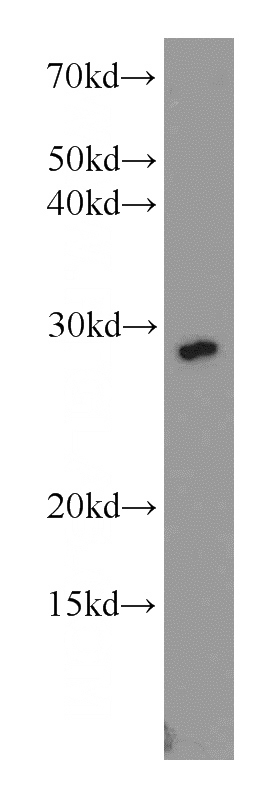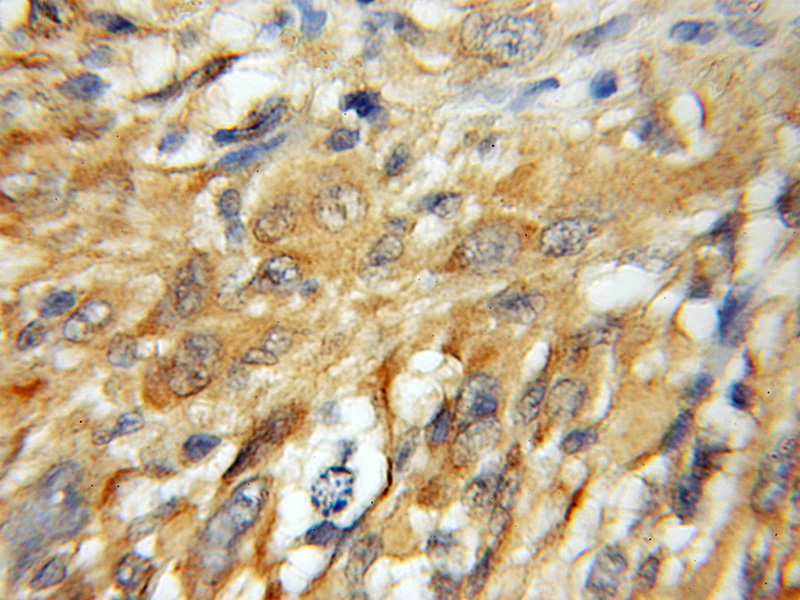-
Product Name
DCUN1D1 antibody
- Documents
-
Description
DCUN1D1 Rabbit Polyclonal antibody. Positive WB detected in mouse brain tissue, mouse kidney tissue. Positive IHC detected in human gliomas tissue. Observed molecular weight by Western-blot: 28 kDa
-
Tested applications
ELISA, IHC, WB
-
Species reactivity
Human,Mouse,Rat; other species not tested.
-
Alternative names
DCN1 like protein 1 antibody; DCUN1D1 antibody; DCUN1L1 antibody; RP42 antibody; SCCRO antibody; SCRO antibody; Tes3 antibody
-
Isotype
Rabbit IgG
-
Preparation
This antibody was obtained by immunization of DCUN1D1 recombinant protein (Accession Number: NM_020640). Purification method: Antigen affinity purified.
-
Clonality
Polyclonal
-
Formulation
PBS with 0.1% sodium azide and 50% glycerol pH 7.3.
-
Storage instructions
Store at -20℃. DO NOT ALIQUOT
-
Applications
Recommended Dilution:
WB: 1:200-1:1000
IHC: 1:20-1:200
-
Validations

mouse brain tissue were subjected to SDS PAGE followed by western blot with Catalog No:109763(DCUN1D1 antibody) at dilution of 1:300

Immunohistochemical of paraffin-embedded human gliomas using Catalog No:109763(DCUN1D1 antibody) at dilution of 1:50 (under 10x lens)
-
Background
It has been found that DCUN1D1, also known as squamous cell carcinoma-related oncogene, expression may play a role in development of brain metastasis in patients with Non-small cell lung carcinoma (NSCLC). DCUN1D1-positive tumor cells may have the ability to disrupt the blood-brain-barrier and colonize the brain. Those results suggest that DCUN1D1 may play a role in the brain parenchyma invasion.
Related Products / Services
Please note: All products are "FOR RESEARCH USE ONLY AND ARE NOT INTENDED FOR DIAGNOSTIC OR THERAPEUTIC USE"
